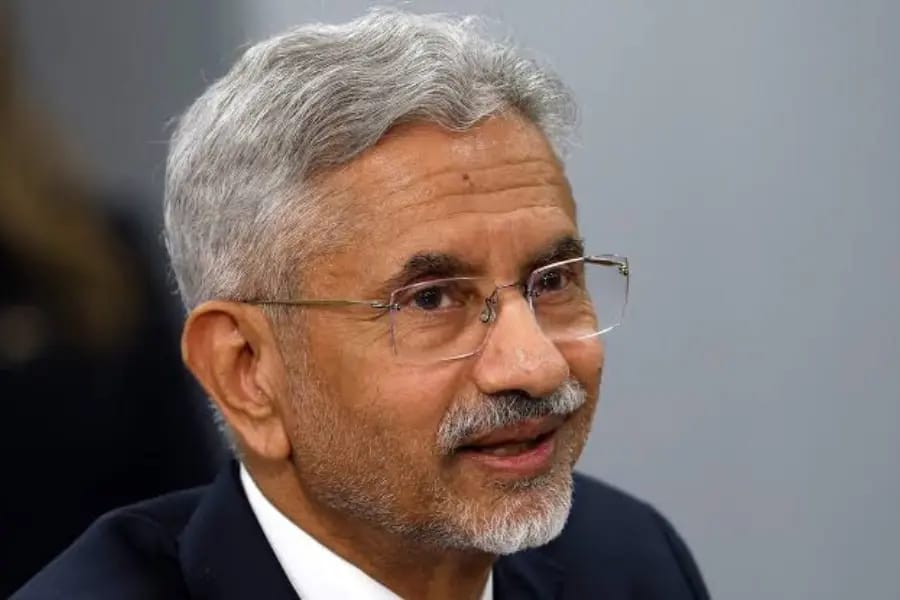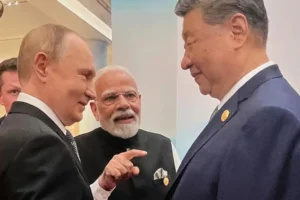
In a significant diplomatic milestone, South Asian External Affairs Minister S. Jaishankar met with Chinese Vice President Han Zheng in Beijing on Monday. This authorized the gradual, yet cautiously, hope to reopen communication between the strained relations of these two large Asian countries. It is after an extended period of decline. Jaishankar’s trip to China is the ministerial’s first visit to China in five years. Coming at a time when there have been some small signs of progress in ongoing bilateral relations after a number of years of deterioration after -most notably but not exclusively. The confrontation after the Galwan Valley incident in 2020.
This meeting takes place under the ambit of a much larger diplomatic stress to normalize diplomatic relations. It is to recreate possibilities of cooperation between the two countries. Especially as the global geopolitical landscape appears to become even more politically charged.
Improving Two-Way Communication Practices
In the initial meeting Jaishankar noted the improved status of the relations-active direction of relations between India and China. He pointed to the meeting originally between Prime Minister Narendra Modi and President Xi Jinping in Kazan in October 2024.
Jaishankar said, “Our bilateral relations have been improving…as you pointed out, since the meeting Prime Minister Modi and President Xi.”
When Jaishankar continued, he indicated belief that his meetings in Beijing will assist in maintaining and ideally continue to build this momentum.
He specifically pointed to the recommencement of the Kailash Mansarovar Yatra. It is an important cultural journey for Indian citizens, as an example of positive progress.
Regional Cooperation Amongst a Complex World
With the current world circumstances, Jaishankar turned to the importance of frank discussion between India and China as neighboring countries and major economies.
“The multiple international conditions, as we sit here today, are complicated,” he said. “A free dialogue, of opinion and perspectives between India and China is of great importance.”
This sentiment echoes previous exchanges between Jaishankar and Chinese Foreign Minister Wang Yi, including a meeting during the G20 meeting in Johannesburg this year (2023). It was where both sides emphasized the importance of trust and cooperation.
Revival of Strategic Conversations and Specialized Frameworks
Jaishankar’s trip follows recent trips to China from their Defence Minister Rajnath Singh and National Security Adviser Ajit Doval. It appears to demonstrate a renewed interest from both sides to revive channels of strategic communication. Wang Yi is expected to visit India next month to talk with NSA Doval as part of the Specialized Representatives (SR) framework. This is intended to sort out other long-standing issues on the border.
This revival of the past discussion appears to have occurred as a result of the ideal but brief interaction between Modi and Xi in Kazan last year.
Looking Ahead: Opportunities and Challenges
The 2020 Galwan Valley incident was the nadir of India-China relations over the last forty years. Indeed, bilateral trust and diplomatic momentum suffered as a result. On the other hand, the number of new developments, high-level visits, re-establishment of the religious to/from India routes, and actual placeholder in a multilateral forum, all may indicate interest from both sides to find better ways to connect.
Given the most latest news on Business, these kinds of diplomatic initiatives are urgently needed. The relationship between the two largest economies in Asia that can stabilize trade, development, and cross-border investment opportunities—providing signals of hope to global trade and the attitudes of investors.
Despite unresolved difficulties, like the border issue, still present and not going away, rhetoric and substance surrounding Jaishankar’s trip to China suggests that both sides are actually willing to move forward together. In the spirit of further dialogue, multilateral cooperation and confidence building, India and China could more collectively respond to one another, and create a more balanced relationship – which would have implications in regard to the region, and the broader geopolitical and economic order.








s38ixv